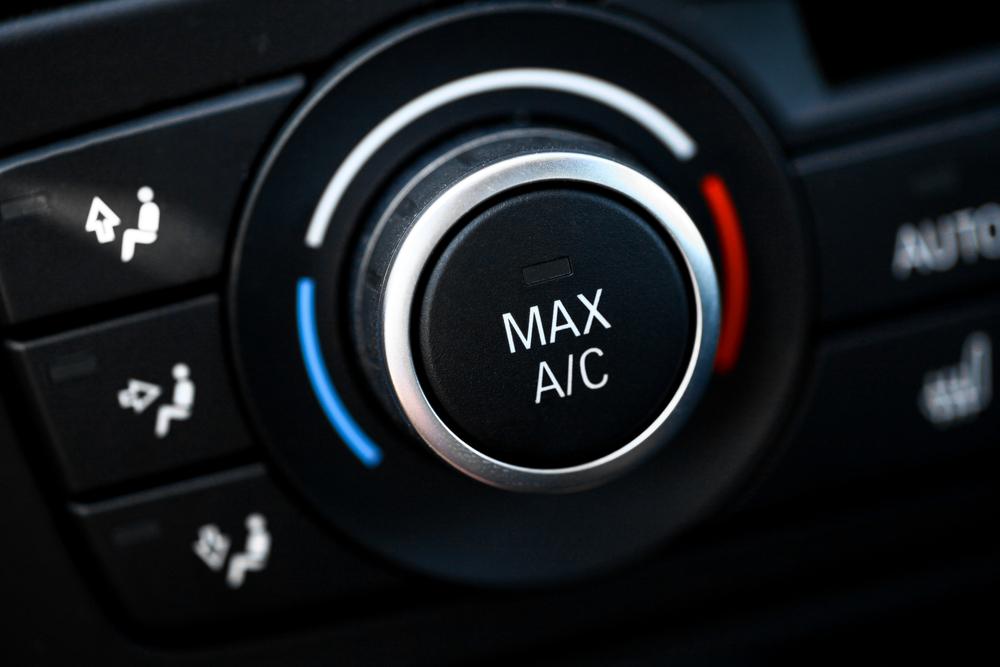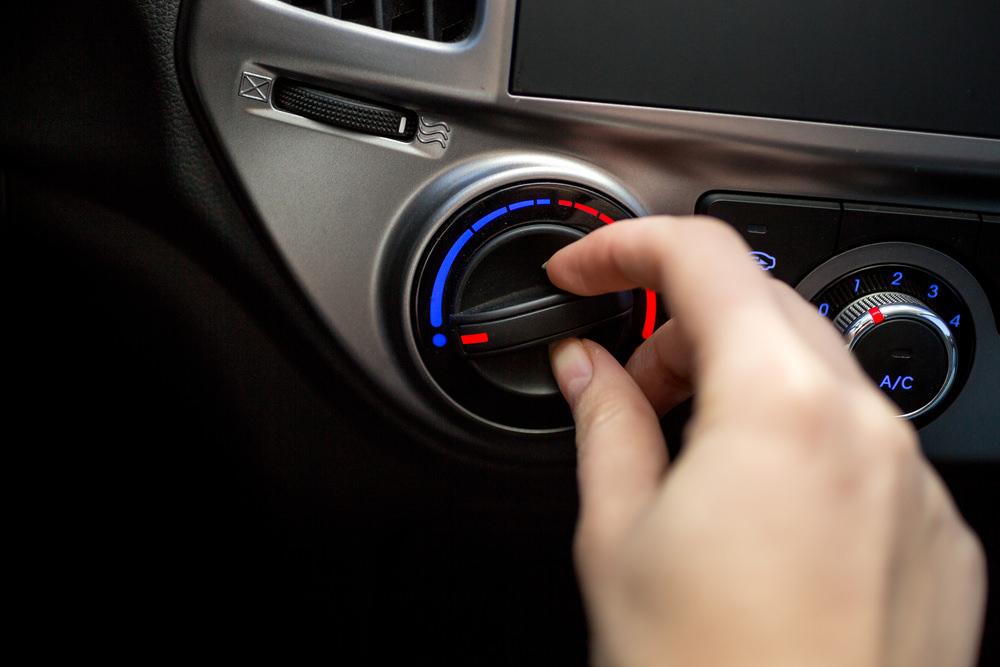Does car air conditioning use gasoline? Of course, it does! So, it’s a no-brainer that switching the air conditioning system on in your car will hurt the gas mileage, just like any other feature that draws power by burning fuel. The question is does AC burn gas than open windows?
Contents
How Much Gas Does AC Use?
Running a car’s AC system burns fuel but the amount of the consumption depends on the AC compressor operation. It could be up to 5% decrease in gas mileage if you run the air conditioning on a scorching summer day with the car full of passengers.
For example, if you are driving a VW Jetta diesel car with a 90HP engine that gets rid of approximately 9HP from the drivetrain when engaged, it will consume about ½ liter extra fuel after 100 km of driving.

However, the thing that consumes the most amount of fuel is keeping the engine and air conditioning on when the car is idling. Such idling affects even the mileage of the Toyota Innova too that is hardly affected by the running air conditioner.
Does AC Burn Gas More Than Windows Down?
It actually depends on your car’s make and model, driving habits, the speed of the car, and a few other factors. The running of AC does burn gas but the open windows enhance the vehicle’s aerodynamic drag, making the engine work harder and burn more fuel.
The Society of Automotive Engineers tested an SUV and a full-size sedan in two different tracks in 2004. According to the test, driving at 50 or 55 mph with windows open was worse for the mileage.
At that speed, the fuel efficiency drops by 20% with windows down while the rate is 10% with the air conditioning on.
However, another test done by the Consumer Reports in 2012 showed a slightly different result. The fuel efficiency of a Honda Accord dropped by around 3mpg when the car ran at a 65 mph speed with the AC on.
So, it seems that the mileage efficiency depends on the environment, the car’s speed, car’s model, and a few more conditions. There is no one condition that can fit all the cars and drivers.
SEE MORE
When Does AC Burn Gas More Than Open Windows?
The AC proves to be burning more fuel than open windows when you are driving at less than 50 miles per hour.
So, the best practice is to keep the windows down when the weather is a bit cooler and you are driving inside the city. The drag will be ignorable at that speed, so the engine won’t consume much fuel.
The AC suits better to a highway drive in hot weather. However, if you find that the air conditioning is draining the fuel rather quickly or overheating the engine, turn it off. It mainly happens when the level of fuel in the oil tank is dangerously low.
Remember that you should not try to save a small amount of fuel by turning the AC off on a sweltering hot day. The excessive heat could cause health problems or make it bothersome to concentrate on driving.

>> Buy a high-quality used car at best deal from Japanese authorized dealers here <<
FAQs on AC Burning Gas
-
Is it more fuel-efficient to use AC or open windows during city driving?
In city driving, the impact of using AC versus open windows on fuel consumption is more noticeable at lower speeds. Air conditioning can have a greater impact on fuel efficiency in stop-and-go traffic, while open windows might be more efficient at moderate speeds.
-
How much does using AC affect fuel economy on the highway?
Using air conditioning on the highway can decrease fuel efficiency due to the added load on the engine. It’s generally more efficient to keep windows up and use the AC sparingly, especially at higher speeds.
-
Are there instances where using AC is more fuel-efficient?
Yes, in certain situations, like driving at higher speeds on the highway, using AC with windows closed can be more fuel-efficient than having windows open due to reduced aerodynamic drag.
-
Does the type of vehicle make a difference in AC fuel consumption?
Yes, larger vehicles like SUVs and trucks may experience a greater increase in fuel consumption when using AC compared to smaller, more aerodynamic cars. However, the difference can vary depending on the vehicle’s design and engine efficiency.
-
How can I maximize fuel efficiency while using AC?
To minimize the impact of AC on fuel consumption, consider using the AC sparingly, setting it at a moderate temperature, and using the vehicle’s recirculation mode to cool the air more efficiently.
-
Does rolling down windows affect fuel efficiency in electric cars?
Electric vehicles (EVs) are generally less affected by rolling down windows compared to traditional internal combustion engine vehicles. However, using the AC in an EV can still impact its driving range.
-
Is there a rule of thumb for deciding when to use AC or open windows?
There’s no one-size-fits-all rule, as the best choice depends on driving conditions. As a general guideline, at lower speeds and in moderate weather, consider using windows open; at higher speeds or in hotter conditions, opt for AC with windows closed.
-
Does using AC excessively harm the engine or fuel system?
Using AC within normal limits should not harm your vehicle’s engine or fuel system. Modern vehicles are designed to handle AC usage, but excessive strain on the AC system could lead to increased wear over time.
-
How can I find the right balance between comfort and fuel efficiency?
It’s important to strike a balance based on the specific driving situation. Prioritize safety, comfort, and fuel efficiency. Experiment with different settings and strategies to determine what works best for your vehicle and driving habits.
Check out the video below from Engineering Explained to see more details:
Final Words
The question of whether AC burns more gas than open windows depends on a variety of factors, including driving conditions, vehicle type, and speed.
While using air conditioning does tend to consume more fuel due to the added strain on the engine, driving with windows open also introduces aerodynamic resistance that can impact fuel efficiency.
Optimal fuel-saving strategies may vary based on the situation. Drivers should consider factors such as driving speed, weather conditions, and comfort preferences when deciding between AC usage and open windows.
Ultimately, striking a balance between maintaining a comfortable driving environment and optimizing fuel economy is key to making informed choices on the road.




Very educative articles. Thanks.
Please help me, I have a Toyota dyna 3y engine and petrol propelled. I feel consumption is very high it takes me about 35 ltrs to cover 200km.Its a caburatred Dyna. Is ot normal? How much fuel under normal circumstances must a vehicle consume per km? What then must I do to control the high consumption?. Rodgers Chikuse from Zambia. My line is +260977727331also on whatsapp
I have regius 2.7 cc petrol, the fuel consumption is high, how should I b using to bring the consumption down?
Informative. Keep up the good work
The statement “However, the thing consumes the most amount of fuel is keeping the engine and air conditioning on when the car is idling. Such idling affects even the mileage of the Toyota Innova too that is hardly affected by the running AC.” has left me confused. How does it happen exactly? Secondly, for those of us in extremely hot countries in which thieves are always waiting for slow traffic to pounce; what shall we do (other than employing that high consumption habit)?
Why do u use miles per hour(mph) in your posts and yet vehicle speedometers are marked in kilometers per hour(km/h)? Do we have to calculate to covert miles to kilometers when we are reading?
The article you shared is very useful, Thanks for sharing your knowledge.